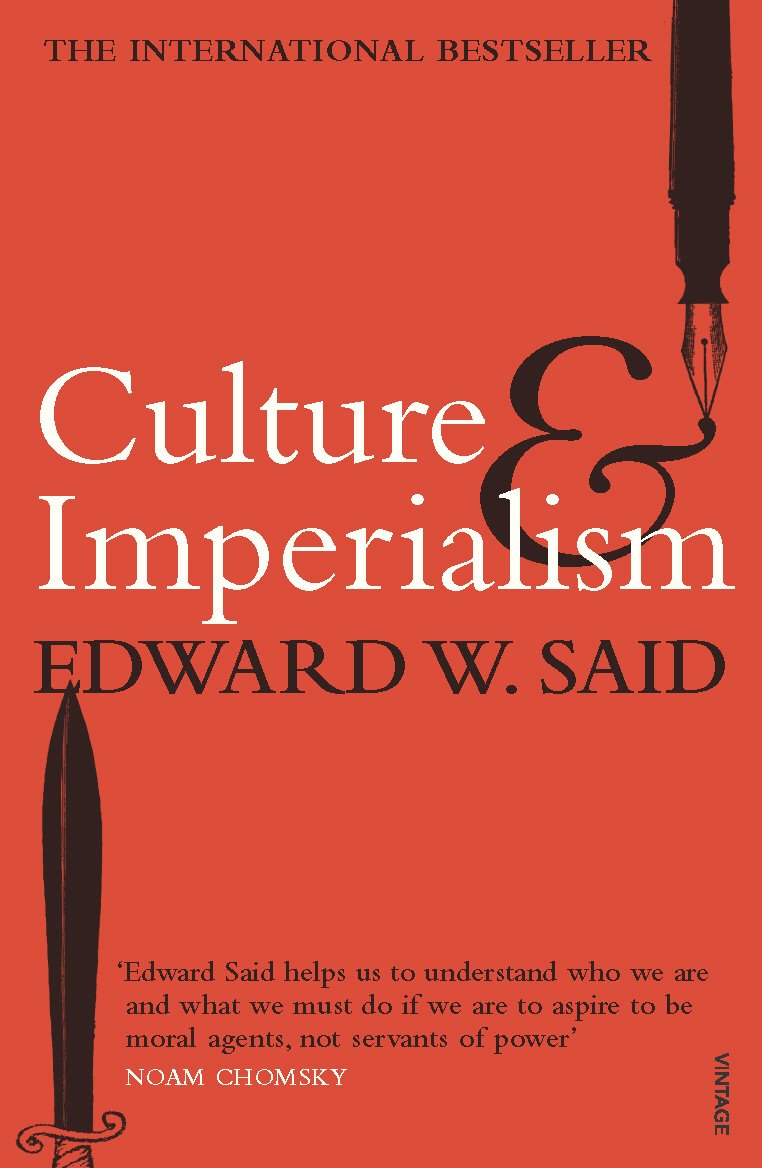About this deal
Besides his academic work, he wrote a twice-monthly column for Al-Hayat and Al-Ahram ; was a regular contributor to newspapers in Europe, Asia, and the Middle East; and was the music critic for The Nation . Said argues for reading the literary canon with an awareness of these intertwined histories, that support the expansion of Western supremacy. To answer such questions you must have independence and detachment of someone whose homeland js ‘sweet’, but whose actual condition makes it impossible to recapture that sweetness and even less possible to derive satisfaction from substitutes furnished by illusion or dogma, whether deriving from pride in one’s heritage or from certainty about who ‘we’ are. His definition of "culture" is more complex, but he strongly suggests that we ought not to forget imperialism when discussing it.
This was an unexpected pleasure, as I'd never read Said before and was fearful of drowning in jargon. Every time I start writing a review for this in my head it feels like I’m having a fight with unknown people.
Missing is discussion about Russian/Soviet and East Asian imperialist literatures - perhaps there is more that Said wrote/spoke on these regional literatures, but undoubtedly similar contrapuntal reading opportunities here too with Eastern European, Balkan, Ukrainian, Korean, Philippine, Vietnamese, Cambodian (etc etc etc) voices. Said indicts public intellectuals in their silence towards the continuing narrative of Western exceptionalism and superiority. For a superior analysis of Conrad's prophetic "Heart of Darkness", I'd recommend Sven Lindqvist's "Exterminate All the Brutes". To see them as reflective of, and even generative, of attitudes is to make them more interesting, to see them in their totality.
We also know and want you to know that we are a superior racial group, our intellectual abilities are beyond your comprehension and reach”. There are strikingly important points that Edward Said makes at the very end of this book that were reminiscent of Amin Maalouf’s “In the Name of Identity, Violence and the Need to Belong. And even where democracy has established a foothold in these cases we have recently been seeing a backslide to more authoritarian regimes or simply just corrupt oligarchies. The book rewards a close reading, and I blackened many pages of my notebook writing down entire paragraphs.
A landmark work from the intellectually auspicious author of Orientalism that explores the long-overlooked connections between the Western imperial endeavor and the culture that both reflected and reinforced it. From Jane Austen and Charles Dickens, to Rudyard Kipling and Albert Camus, Saïd insists that these works are aware of the fact of empire, and that, at best, they simply take it for granted (the latter two were much more vocal about how they felt, of course). Imperialism is "the practice, the theory, and the attitudes of a dominating metropolitan center ruling a distant territory. To the British and to the French in Algeria empire was embraced, each colony a necessary part of the nation enlarged, accepted with pride along with the seemingly unquestionable facts that the people of the colonies were both inferior and beneficiary to white Europeans.
After the Western colonisers left, we are now colonized by the bourgeoise nationalists who inherited imperial values. Anyhow, the book (collection of essays) focuses on culture (primarily novels) and its link to empire in France, UK and the US. A written work is a kind of time capsule that cannot help but reveal the time in which it was written.
In the past 15 years, we have seen a bit more of scholarship on these topics regarding art and culture of the Middle-east. I was a little dismayed by this fact, which brought home key messages from the book itself on the study of literature, the power of the novel, “what” work is considered important to read, and “for what reasons”. Culture and Imperialism is also published in an era following the fall of the Berlin wall and invasion of Iraq where Western Universalism is under direct criticism. Like we are all eating tons of hummus and kimchi now and read non-Western authors, Murakami lol, watch Iranian movies and have African wooden masks or at least some Buddha shit in our bed rooms.
In a wonderful metaphor, he sees the existence of anti-colonial revolt, the dissent of the Third World, and the "discrepant experiences" of the 'natives'- who would not have recognized themselves in Western accounts of the 'inferior races'- as introducing polyphony into the music of Western self-conception and identity. But its worst and most paradoxical gift was to allow people to believe that they were only, mainly, exclusively, white, or Black, or Western, or Oriental. Said distinguishes this book from Orientalism both by employing a broad comparative literature framework to examine imperialism’s relationship to culture as a broad system across a range of imperial ventures and through his attention to the resistance to imperialism also present in literature. There are many Booker and Nobel Prize-winning authors on the Vintage list such as Kingsley Amis, A S Byatt, J M Coetzee, Ismail Kadare, Ian McEwan, Salman Rushdie, Anne Enright, Iris Murdoch, Roddy Doyle and Ben Okri, to name a few.He analyses Verdi's opera Aida as an example of his thesis on the Imperialising nature of western culture because of factors like the fact that Verdi didn't present a thoroughly accurate version of Egyptian society in the opera. In an effort to overthrow the oppressor, so many former colonies just modeled themselves after the occupying powers. Our colonisers told us who to be, how to think and how to run the country years after they have left. Like, yeah, culture plays a central role in maintaining and confirming power/ hegemonic ideology, imperialist or otherwise.
Related:
 Great Deal
Great Deal 